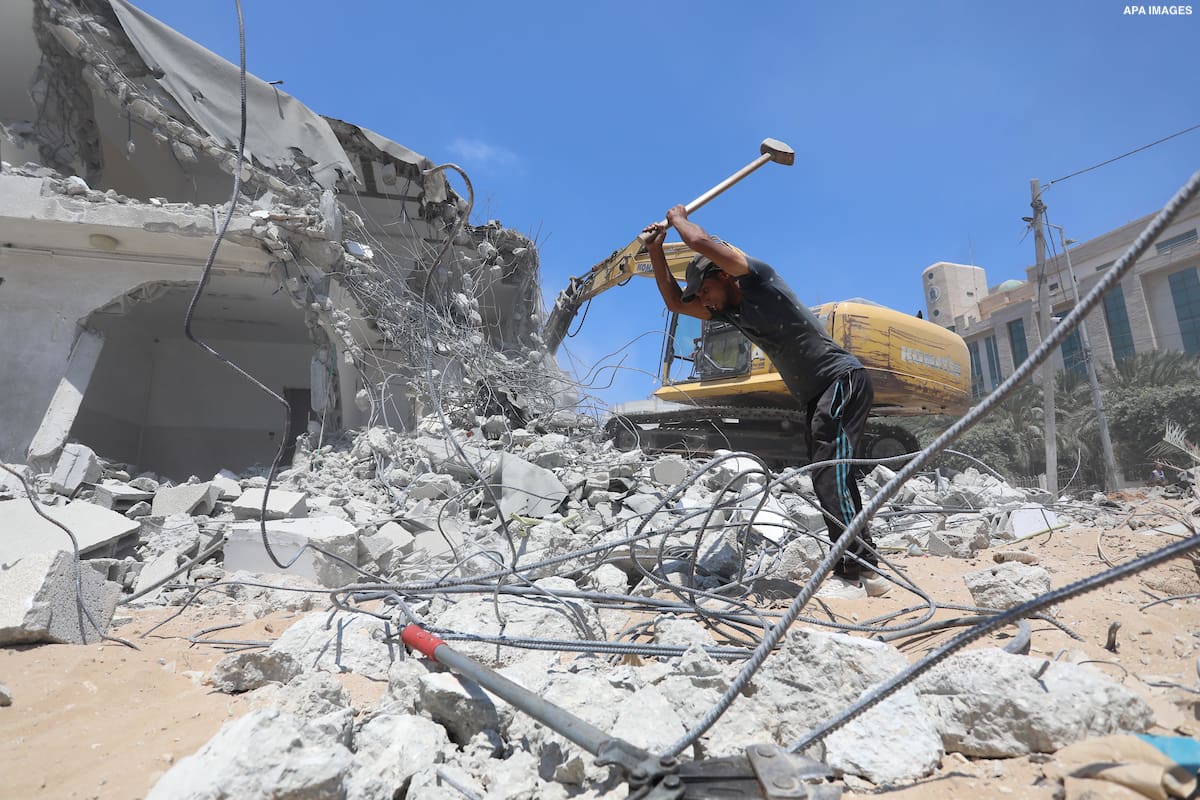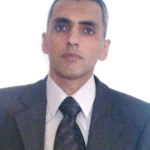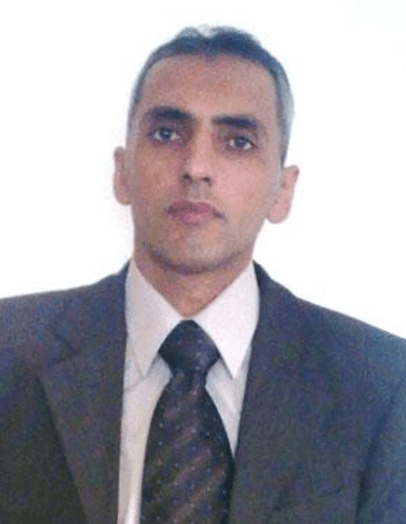
Following the Israeli attack on Gaza in 2014, the Palestinian and Israeli governments, and with international sponsorship, formed a temporary arrangement through which large quantities of “dual-use” items were allowed to enter Gaza for the purpose of reconstruction. This mechanism is known as the Gaza Reconstruction Mechanism (GRM), and is considered by many Palestinians to be corrupt and unjust, as it legitimizes the Israeli blockade imposed on Gaza since 2006, and effectively impedes the reconstruction process. The GRM gives Israel the right to completely control what is allowed to enter Gaza, including necessary materials for reconstruction.
The continuous Israeli attacks on Gaza in recent years, especially the most recent assault in May 2021, have led to widespread destruction of material resources that undermines prospects for recovery and reconstruction in the besieged enclave. As the GRM fundamentally perpetuates the Israeli regime’s siege, what is needed is a new reconstruction mechanism.
This policy memo explores what a more robust, effective, and representative Palestinian reconstruction plan should look like. It offers recommendations to Palestinian leadership and civil society, as well as the international donor community, for how they can bring about a self-determined reconstruction mechanism.
What a New Mechanism Requires
The GRM is limited to the reconstruction of buildings and public facilities, including infrastructure and roads, within a settler-colonial context. It is intertwined with the structures and policies of neoliberalism in a way that meets the needs of the Israeli regime, and thus, undermines the possibilities of resistance. Its aim is to obscure the fact that reconstruction needs to extend to the political sector so that it imposes conditions on Israel that pressure it to end its ongoing siege of Gaza.
A new reconstruction mechanism must revitalize the Palestinian national struggle as a prerequisite for rebuilding Palestinian infrastructure Share on X
A new reconstruction mechanism must revitalize the Palestinian national struggle as a prerequisite for rebuilding Palestinian infrastructure. It must also be designed to end the Palestinian political division, so as not to limit its scope to Gaza. That is, the new mechanism should lay out a plan for a unified Palestinian political sphere which defies their fragmentation, and which contributes to strengthening Palestinians’ confidence in their leadership as a means to achieve a desired political future. This would necessitate the formation of a supervisory committee for the reconstruction mechanism – a committee whose membership would include politically and socially diverse Palestinians from across all parts of colonized Palestine.
Recommendations
Palestinian leadership and civil society, as well as the donor community partaking in the GRM, should consider the following recommendations:
- Palestinian leadership and civil society must mobilize nationally and internationally against the continuation of the GRM, taking advantage of the rise in international solidarity with the Palestinian cause. They must speak out publicly against the GRM to raise awareness about how the GRM is a tool of the colonizer that must be protested. This is particularly important for youth, who are at the forefront of the new struggle for liberation.
- Palestinian leadership must actively work towards internal reconciliation as part of its campaign to raise awareness against the GRM. A unified Palestinian political front against a colonial reconstruction mechanism is an ideal platform for promoting unity at the political level. This would contribute to restoring Palestinians’ trust in their leadership, and to building confidence among the donor community about funding a reformed reconstruction plan led by united Palestinians.
- Palestinian leadership and civil society must form a nonpartisan National Council for Reconstruction that consists of professional and specialized individuals from across colonized Palestine. This council must ensure the separation of reconstruction funds from public funds granted to the Palestinian Authority and Hamas governments. It must also play an active role in all stages of the reconstruction process, including in design, planning, implementation, monitoring, and evaluation.
- The international donor community must ensure that funding for the new mechanism does not infringe on the struggle for Palestinian self-determination. It must couple this assistance with political pressure, including boycotting and sanctioning the Israeli regime until it lifts its siege on Gaza.
- The international donor community must likewise reform funding programs to directly revitalize the Palestinian economic sector, thereby reducing its dependence on the Israeli regime.
Talal Ahmad Abu Rokbeh, is a Palestinian residing in Gaza. He is a political researcher and holds a doctorate in political science from the University of Carthage in Tunis. He works as a political analyst and editor-in-chief of the magazine Tasamoh, and he is a member of the Arab Network for Tolerance. He has conducted several research projects, as well as political and legal studies. He is a trainer specialized in Palestinian political affairs, and has written many books on the Palestinian political system. He participated in many regional and local conferences on various political and human rights issues. He is a political analyst for several local and Arab satellite channels, a writer for media and research sites, and a trainer specialized in issues of democracy, human rights, and critical thinking skills for Palestinian civil society institutions. He is also a community activist, advocating for youth issues.











